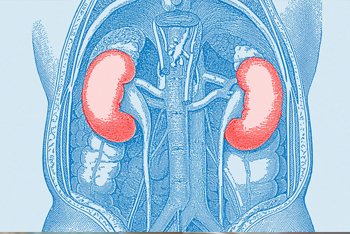
3. T1D and Later Life Dialysis Necessity |

![]() Numerous innovations, supported by large outcome trials have resulted in ultimately reducing cardiovascular (CV) risk and progression to nephropathy in type 1 diabetes (T1D). The epidemiological data also reveals that 25–30% of people with T1D will progress to end-stage renal disease (ESRD). Thus, not everyone develops progressive nephropathy that ultimately requires dialysis or transplantation.
Numerous innovations, supported by large outcome trials have resulted in ultimately reducing cardiovascular (CV) risk and progression to nephropathy in type 1 diabetes (T1D). The epidemiological data also reveals that 25–30% of people with T1D will progress to end-stage renal disease (ESRD). Thus, not everyone develops progressive nephropathy that ultimately requires dialysis or transplantation.
![]() Results of majority of the studies reported so far are very encouraging. It has been documented in many long-term trials that good glycemic and blood pressure control can markedly slow the nephropathy progression, with effects of blood pressure control seen as early as 2.5 years and of glucose control at 5–7 years.
Results of majority of the studies reported so far are very encouraging. It has been documented in many long-term trials that good glycemic and blood pressure control can markedly slow the nephropathy progression, with effects of blood pressure control seen as early as 2.5 years and of glucose control at 5–7 years.
![]() Since the 1980s, the risk of ESRD has been greatly reduced, while the risk of CKD progression persists
but at a slower rate. This reduced ESRD rate and slowed CKD progression is largely due to improvements achieved in glycemic and blood pressure control and probably also due to the use of RAAS (renin-angiotensin-aldosterone system) blockers in more advanced CKD. These data portend even better future outcomes if treatment guidance is followed.
Since the 1980s, the risk of ESRD has been greatly reduced, while the risk of CKD progression persists
but at a slower rate. This reduced ESRD rate and slowed CKD progression is largely due to improvements achieved in glycemic and blood pressure control and probably also due to the use of RAAS (renin-angiotensin-aldosterone system) blockers in more advanced CKD. These data portend even better future outcomes if treatment guidance is followed.
![]() It is thus recommended that clinicians need to continue to monitor kidney function with assessments of eGFR and albumin excretion and maintain guideline goals for glucose and blood pressure control. Recent American Diabetes Association hypertension position statement also emphasizes that, many medications are effective in blood pressure control, but RAAS blockade should always be a part of any regimen when very high albuminuria is present.
It is thus recommended that clinicians need to continue to monitor kidney function with assessments of eGFR and albumin excretion and maintain guideline goals for glucose and blood pressure control. Recent American Diabetes Association hypertension position statement also emphasizes that, many medications are effective in blood pressure control, but RAAS blockade should always be a part of any regimen when very high albuminuria is present.
